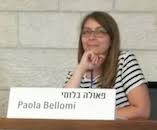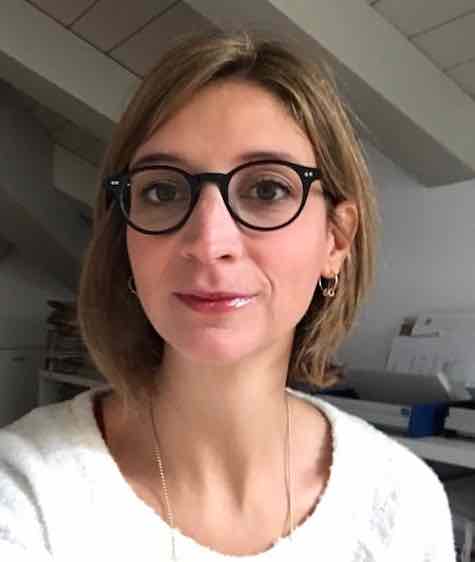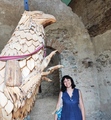Studying at the University of Verona
Here you can find information on the organisational aspects of the Programme, lecture timetables, learning activities and useful contact details for your time at the University, from enrolment to graduation.
Academic calendar
The academic calendar shows the deadlines and scheduled events that are relevant to students, teaching and technical-administrative staff of the University. Public holidays and University closures are also indicated. The academic year normally begins on 1 October each year and ends on 30 September of the following year.
Course calendar
The Academic Calendar sets out the degree programme lecture and exam timetables, as well as the relevant university closure dates..
| Period | From | To |
|---|---|---|
| I SEMESTRE | Oct 3, 2016 | Jan 21, 2017 |
| II SEMESTRE | Feb 27, 2017 | Jun 10, 2017 |
| Session | From | To |
|---|---|---|
| Lingue - SESSIONE INVERNALE | Jan 23, 2017 | Feb 25, 2017 |
| Lingue - SESSIONE ESTIVA | Jun 12, 2017 | Jul 29, 2017 |
| Lingue - SESSIONE AUTUNNALE | Aug 21, 2017 | Sep 23, 2017 |
| Session | From | To |
|---|---|---|
| Lingue - Sessione di laurea invernale | Apr 3, 2017 | Apr 8, 2017 |
| Lingue - Sessione di laurea estiva | Jul 10, 2017 | Jul 15, 2017 |
| Lingue - Sessione di laurea autunnale | Dec 18, 2017 | Dec 21, 2017 |
| Lingue - sessione di laurea invernale | Mar 23, 2018 | Mar 29, 2018 |
| Period | From | To |
|---|---|---|
| FESTA DI OGNISSANTI | Nov 1, 2016 | Nov 1, 2016 |
| FESTA DELL'IMMACOLATA CONCEZIONE | Dec 8, 2016 | Dec 8, 2016 |
| Vacanze Natalizie | Dec 23, 2016 | Jan 7, 2017 |
| Vacanze Pasquali | Apr 14, 2017 | Apr 18, 2017 |
| Festa della Liberazione | Apr 25, 2017 | Apr 25, 2017 |
| Festa dei Lavoratori | May 1, 2017 | May 1, 2017 |
| FESTA DEL SANTO PATRONO SAN ZENO | May 21, 2017 | May 21, 2017 |
| Festa della Repubblica | Jun 2, 2017 | Jun 2, 2017 |
| Vacanze Estive | Aug 14, 2017 | Aug 19, 2017 |
| Description | Period | From | To |
|---|---|---|---|
| ANNUALE | ANNUALE | Oct 3, 2016 | Jun 10, 2017 |
Exam calendar
Exam dates and rounds are managed by the relevant Foreign Languages and Literatures Teaching and Student Services Unit.
To view all the exam sessions available, please use the Exam dashboard on ESSE3.
If you forgot your login details or have problems logging in, please contact the relevant IT HelpDesk, or check the login details recovery web page.
Should you have any doubts or questions, please check the Enrollment FAQs
Academic staff
 valentina.adami@univr.it
valentina.adami@univr.it
 paola.bellomi@univr.it
paola.bellomi@univr.it
 daniele.beltrame@univr.it
daniele.beltrame@univr.it
 paolamaria.caleffi@univr.it
paolamaria.caleffi@univr.it
 riccardo.cella@univr.it
riccardo.cella@univr.it
 elisa.dallarosa@univr.it
elisa.dallarosa@univr.it
 sara.dattoma@univr.it
sara.dattoma@univr.it
 mariangela.lando@univr.it - marilando771@gmail.com
mariangela.lando@univr.it - marilando771@gmail.com
 stefania.montemezzo@univr.it
stefania.montemezzo@univr.it
 chunye.niu@univr.it
chunye.niu@univr.it
 alessia.polatti@univr.it
alessia.polatti@univr.it
 dora.renna@univr.it
dora.renna@univr.it
 fabioantonio.scrignoli@univr.it
fabioantonio.scrignoli@univr.it
 tania.triberio@univr.it
tania.triberio@univr.it
 sonia.trovato@univr.it
sonia.trovato@univr.it
Study Plan
The Study Plan includes all modules, teaching and learning activities that each student will need to undertake during their time at the University.
Please select your Study Plan based on your enrollment year.
1° Year
| Modules | Credits | TAF | SSD |
|---|
1st foreign language2nd foreign language1st foreign literature and cultureGerman literature and culture 1
2nd foreign literature and cultureGerman literature and culture 1
2° Year activated in the A.Y. 2017/2018
| Modules | Credits | TAF | SSD |
|---|
Italian literature and culture
Geography of communication and international trade
Modern and Contemporary Economic History
Theory and Techniques of communication
1st foreign language2nd foreign languageFirst language foreign literature and culture or a related courseEnglish literature and culture 2
German literature and culture 2
Spanish literature and culture 2
Second language foreign literature and culture or a related courseEnglish literature and culture 2
German literature and culture 2
Spanish literature and culture 2
3° Year activated in the A.Y. 2018/2019
| Modules | Credits | TAF | SSD |
|---|
Comparative and European Public law
Principles of international marketing
1st foreign language2nd foreign language| Modules | Credits | TAF | SSD |
|---|
1st foreign language2nd foreign language1st foreign literature and cultureGerman literature and culture 1
2nd foreign literature and cultureGerman literature and culture 1
| Modules | Credits | TAF | SSD |
|---|
Italian literature and culture
Geography of communication and international trade
Modern and Contemporary Economic History
Theory and Techniques of communication
1st foreign language2nd foreign languageFirst language foreign literature and culture or a related courseEnglish literature and culture 2
German literature and culture 2
Spanish literature and culture 2
Second language foreign literature and culture or a related courseEnglish literature and culture 2
German literature and culture 2
Spanish literature and culture 2
| Modules | Credits | TAF | SSD |
|---|
Comparative and European Public law
Principles of international marketing
1st foreign language2nd foreign language| Modules | Credits | TAF | SSD |
|---|
Legend | Type of training activity (TTA)
TAF (Type of Educational Activity) All courses and activities are classified into different types of educational activities, indicated by a letter.
Russian Language 3 (2018/2019)
Teaching code
4S002935
Teacher
Coordinator
Credits
9
Also offered in courses:
- Russian Language 3 of the course Bachelor's degree in Languages and Cultures for Publishing
- Russian Language 3 of the course Bachelor's degree in Foreign Languages and Literatures
Language
Russian
Scientific Disciplinary Sector (SSD)
L-LIN/21 - SLAVIC STUDIES
Period
II semestre dal Feb 18, 2019 al Jun 1, 2019.
Learning outcomes
At the end of the course students are expected to:
- Know the most relevant morpho-syntactic structures of the Russian language, its lexical peculiarity, different linguistic registers, as well as specific terminology for - literature and publishing (L11) / tourism and commerce (L12);
- Apply the acquired knowledge to the comprehension of long and complex texts, and oral and written communication, in particular for literary (L11) / professional (L12) purposes.
- Have acquired the Russian language skills correspondent to CEFR C1 level.
Цель освоения дисциплины
В результате освоения дисциплины студент должен:
- знать: основные морфо-синтаксические структуры русского языка; особенности лексики, языковых стилей и терминологии в области литературы и издательского дела (L11) / в области торговли и туризма (L12).
- уметь: применять полученные знания в понимании объемных сложных текстов в процессе письма и речи на русском языке, в различных сферах, включая профессиональную и издательскую.
- владеть: русским языком на уровне С1 в системе CEFR.
Program
1) Morpho-syntactic peculiarity of Russian language
A) Case syntax
B) Syntax
B.1) The independent clause (impersonal clause and impersonal constructions)
B.2) The dependent clause (temporal, causal and final clauses; conditional clauses; direct and indirect speech)
C) Verbal system (peculiarities of aspect)
2) Russian language lexicon, especially for literary, artistic, and linguistic texts (L11) / tourism and commerce (L12).
Teaching mode: frontal lessons, e-learning, reading, translation, and analysis of literary, artistic, and linguistic texts (L11) / touristic and commercial texts (L12).
Other materials will be provided on the course e-learning page.
ПРОГРАММА
1)Морфо-синтаксические особенности русского языка
А) Падежный синтаксис
B) Синтаксис:
B1) Простое предложение (безличные конструкции)
B2) Сложное предложение (придаточное предложение времени, причины и цели;
косвенный вопрос, придаточное предложение условное, прямая и косвенная речь)
С) Глагольная система (особенности в употреблении видов глагола)
2) Свойства лексики русского языка и терминологии в области издательского дела (L11) / торговли и туризма (L12).
Форма обучения: лекционные занятия, электронное обучение, чтение, перевод и грамматический анализ текстов литературного (L11) / туристического или коммерческого (L12) характера.
Другие материалы будут размещены на странице курса.
| Author | Title | Publishing house | Year | ISBN | Notes |
|---|---|---|---|---|---|
| Cevese C., Dobrovol'skaja Ju. | Sintassi russa. Teoria ed esercizi | Hoepli | 2004 | 978-88-203-3389-8 |
Examination Methods
Intermediate evaluation: test on lexicon and grammar.
Final evaluation: written and oral exam.
The questions will cover any of the topics mentioned in the program. During the interview, the student will be asked to read, translate, and analyse from a linguistic point of view the artistic and literary (L11) / touristic and commercial (L12) passages proposed during the classes.
The assessment will consider the following criteria:
- Content accuracy and completeness
- Achievement of adequate analysis abilities
- Clarity in the exposition, arguing ability, and knowledge of the subject-specific lexicon.
Prerequisites for exam:
This exam cannot be taken before having passed the following exams: Русский язык 2 and Русская литература 2.
Критерии контроля качества знаний:
- точность и полнота ответа с точки зрения содержания
- способность самостоятельного анализа
- ясность изложения, умение аргументировать и владение специальной терминологией и лексикой дисциплины.
Условия допуска к экзамену:
- К экзамену допускаются только студенты, успешно сдавшие экзамены по русскому языку и литературе за второй год обучения (Русский язык 2 и Русская литература 2).
Type D and Type F activities
To discover all the teaching activities accredited by the foreign teaching college click here
Career prospects
Module/Programme news
News for students
There you will find information, resources and services useful during your time at the University (Student’s exam record, your study plan on ESSE3, Distance Learning courses, university email account, office forms, administrative procedures, etc.). You can log into MyUnivr with your GIA login details: only in this way will you be able to receive notification of all the notices from your teachers and your secretariat via email and also via the Univr app.
Student login and resources
Gestione carriere
Assegnazione tutore
Attività accreditate D/F
Calendario didattico dettagliato
Cambio lingua curriculare
Competenze informatiche
Competenze linguistiche (prima e seconda lingua)
Competenze linguistiche in triennale (terza lingua CFU F)
Compilazione del piano didattico
Corso di Lingua portoghese
Erasmus+ e altre esperienze all'estero
Linguistic training CLA
Presentazione dei corsi di studio e Open day
Graduation
Saperi minimi
Stage e tirocini
Nel piano didattico della laurea triennale in Lingue per il turismo e il commercio internazionale (L12) è previsto un periodo di stage obbligatorio (CFU 6) in organizzazioni imprenditoriali.
Le attività di stage sono finalizzate a far acquisire allo studente una conoscenza diretta in settori di particolare interesse per l’inserimento nel mondo del lavoro e per l’acquisizione di abilità professionali specifiche.
Le attività di stage sono svolte sotto la diretta responsabilità di un singolo docente presso studi professionali, enti della pubblica amministrazione, aziende accreditate dall’Ateneo veronese.
I crediti maturati in seguito ad attività di stage saranno attribuiti secondo quanto disposto nel dettaglio dal “Regolamento d’Ateneo per il riconoscimento dei crediti maturati negli stage universitari” vigente.
- Tutte le informazioni in merito agli stage per futuri studenti sono disponibili alla pagina Stage e tirocini.
- Tutte le informazioni in merito agli stage per studenti iscritti sono pubblicate in MyUnivr - come fare per - stage e tirocini.
- Tutte le informazioni in merito agli stage per le aziende sono disponili alla pagina Stage e tirocini per azienze.
Ulteriori informazioni al seguente link https://www.univr.it/it/i-nostri-servizi/gestione-carriere-studenti-lingue-e-letterature-straniere/stage-e-tirocini-lingue-e-letterature-straniere


 +39 045802 8409
+39 045802 8409

























































